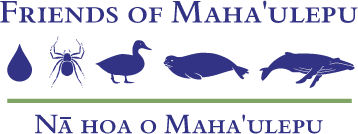- http://www.pce.parliament.nz/assets/Uploads/PCE-Water-quality-land-use-web-ammended.pdf
Entire 82 page report of Parliamentary Commissioner for the Environment (PCE) 2013 - Waterways will get worse – Commissioner
After extensive studies by government and dairy industry, independent PCE reported poor-water quality is caused by the run-off of nutrients from farm land, which breeds invasive weeds, slime and potentially toxic algal blooms. Last summer, toxic blooms in the Hutt River killed several dogs.Already choked with weeds and algae, waterways will get even worse as the dairy industry continues to boom, the Environment Commissioner says. … Read More
- http://dx.doi.org/10.1080/00288230909510520
New Zealand Journal of Agricultural Research Volume 52, Issue 4, 2009
Increasing intensity of dairy farming and unsustainable agricultural activities contribute to degradation of several ecosystem services such as clean air and water. The New Zealand dairy industry receives widespread public criticism of its environmental impacts. - http://www.stuff.co.nz/the-press/news/9425346/Dairy-farming-harming-water
“What no one wants to talk about is that the current ‘white gold rush’ is leading New Zealand to a freshwater quality disaster.” He said even if all dairy farmers employed industry best practice, nitrogen levels would increase and make swimming and fishing in many of our lakes and rivers a thing of the past. - http://nzic.org.nz/ChemProcesses/dairy/3J.pdf
Environmental Issues in Dairy Processing, Written by J. W. Barnett, S. L. Robertson and J. M. Russell, Environment Portfolio, New Zealand Dairy Research InstituteThe dairy industry like other industries in New Zealand has come under increasing pressure to improve its environmental performance. The pressures for change in New Zealand havecome from changes in environmental legislation, trade negotiations and customers who are concerned about the conditions in which the product they are purchasing is manufactured. This article describes the effects of dairy processing operations on the environment, wastewater sources and characteristics, wastewater treatment, and air emissions. - Does Best Management Practice on Diary Farms Result in Better Stream Health?
The Best Practice Dairy Catchments study (2001-2011) has provided an invaluable data set describing water quality from five monitored catchments located in Waikato, Taranaki, Canterbury, Southland and the West Coast. While there have been some improvements in water quality resulting from increased stream fencing and greater use of irrigation for effluent disposal, N concentrations have increased as dairy farming has continued to intensify. - Turning the tide on water pollution
With half of New Zealand’s lakes and rivers unsafe for swimming – and many beaches too – poor water quality is the most important problem facing their environment. - Farming for Economic Resilience and Environmental Performance: Tomorrows Farms Today 2010-2013
To date most studies have considered single mitigations and the cost of change. An understanding is emerging that if significant reductions in net losses of nitrogen are to be achieved in sensitive catchments, it may mean farm system reconfiguration must occur. - NZ’s Dairy Industry Facing Growth Challenges
This article in the New Zealand Herald is from June, 2014, front page of the Business section. Their biggest problems are #1, WATER POLLUTION of water ways, and oceans. And, a close #2 is GREENHOUSE EMISSIONS that are widening the huge existing Ozone hole that sits over NZ. A great read!!! - Cows and seep – Dairy farming is polluting New Zealand’s water
An article from The Economist confirming that the New Zealand dairy model is not one any knowing community should follow. The countrywide pollution that has left 60% of all of New Zealand’s fresh water unsafe for human contact is not something we want on Kauai.
